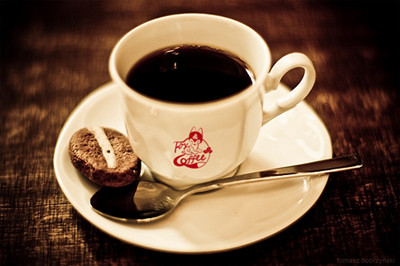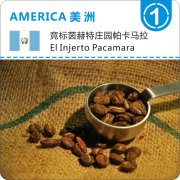Coffee is innocent: why is coffee the smartest drink?!

Artists and writers like coffee very much when they create new works. Coffee has always been a drink that ignites creativity; it brings emotion, creativity and inspiration. In the past, coffee was used as a food and a medicine. Today, if consumed properly, coffee can prevent rather than cure health problems. When you drink coffee in the company of a good book or a good friend, while enjoying the delicious and fragrant coffee, you must also benefit from its health advantages.
Ethiopia was the first place in the world where people lived. Ethiopia is called the roof of Africa because of its mountainous mountains. It is the birthplace of coffee. The Arabs were not only the first to grow coffee, but also the first people to trade coffee. In the centuries that followed, coffee was grown in the Yemeni region of Arabia and then spread to Persia, Egypt and Syria. Coffee can be drunk not only at home, but also in public cafes called "cafes". The popularity of coffee houses is unprecedented. People often patronize coffee houses to participate in a variety of social activities. They not only drink coffee and talk, but also listen to music, watch performances, play chess and keep abreast of the latest news of the day. As a result, cafes soon became an important center for the exchange of information, often referred to as "schools for the wise".

The first to introduce coffee in words were two knowledgeable doctors: Razes (CE, 865-925) and Avicenna (980-1037), both of whom introduced the advantages of coffee. Drinking coffee can cure all kinds of diseases, including fever and frigidity.
Over the centuries, with the continuous enjoyment of coffee, the Islamic Empire developed the highest level of civilization and culture in the world. At a time when Europe is still mired in ignorance and barbarism, and when most people are still illiterate and uncivilized, Islamic rulers have begun to build schools and libraries on a large scale. The medical library at Mansuri Hospital in Cairo is so large that six librarians have to be employed. Cairo has also built a large library comparable to the "Palace of Wisdom" in Baghdad, where lawyers, astronomers, grammarians and physicists often give lectures. Cairo University was founded in 970 AD, while the Salerno Medical Center, the first famous medical center in the Middle Ages, was also established in Sicily near Arabia, while the University of Montpellier, the first medieval university with outstanding medical achievements, was established in 1181 in the south of France near the Spanish border. After that, many colleges and universities such as the University of Paris, the University of Bologna, the University of Oxford, the University of Cambridge and the University of Padua were established one after another, and the focus of medieval medicine was not in the laboratory and hospital, but in the library. Knowledge of traditional Greek medicine and other fields was spread to the Arab world through Christian civilians who were driven out of the Byzantine Empire. Accompanied by coffee, they experienced countless sleepless nights, translating the works of Greek writers into Semitic, early Syriac or Hebrew, and later Arabic.

Coffee shops encourage people to meet and communicate and solve problems around them. At that time, the cafe was a place of intellectualism, scientific discovery and debate. Coffee was first introduced to England in 1610. Before there was a coffee shop in London, the first coffee shop opened in Oxford in 1650. Cafes are much softer in interior decoration and atmosphere than noisy bars and breweries. The cafe has bookshelves, mirrors and fine furniture, and the atmosphere here is calm and orderly. Part of the reason for the popularity of coffee is the need of a new middle class: civil servants and businessmen need to keep their brains, not their limbs, awake. By 1663, there were 82 cafes in London, and by 1700 there were more than 500. The London Cafe, which costs only a penny for entry, has become a hotbed of thought for writers, politicians, businessmen and scientists who discuss and spread the news here. Big cafes even publish their own newsletters. In the 18th century, the first English newspaper appeared in a cafe and was read aloud. As a result, the prosperity of the cafe culture that inspires meaningful meetings for thinkers is seen as the beginning of truly informed public opinion.

Some cafes have become learning centers because members of the Royal Society hold regular "Club of the Wise" meetings here. They often hold meetings at the Devereaux Cafe on Strand Avenue. Isaac, president of the society. Sir Newton, the great astronomer Professor Harley, the collector Sir HansSloane (many of his treasures are part of the British Museum) and other intellectual men who often come to the Graecian Cafe, as described in the Gossip magazine, "usually spend the whole night learning about ancient relics and thinking about anything new that will bring new knowledge". To this end, Graecian regulars will have a "very pleasant enjoyment" here, especially at night, by sorting out the chronology of the Iliad. In the 17th and 18th centuries, Graecian had a high reputation in London's cafes.
Important Notice :
前街咖啡 FrontStreet Coffee has moved to new addredd:
FrontStreet Coffee Address: 315,Donghua East Road,GuangZhou
Tel:020 38364473
- Prev

Asian buyers bid for "sky-high price" rare coffee
There is no most expensive, only more expensive, the sky-high price of coffee in the coffee market is simply stunning, what kind of coffee is so amazing, such a sky-high price? What is the sky-high price? Where did the buyer come from? Don't worry, we'll uncover it for you one by one. According to Taiwanese media, Asian buyers are scrambling to bid for rare coffee on the Internet, which are already available in the market.
- Next

An interpretation of the importance of Coffee to the World Coffee value proposition
Coffee, tea and cocoa are the three world-famous drinks, among which coffee is the world's largest beverage in terms of sales and purchase of raw materials, second only to oil. The value of coffee is not limited to serving as a beverage. Today, let's talk about the value proposition of coffee. Because coffee contains starch, lipids, proteins, sugars, caffeine, aromatic substances, natural antidotes and other organic substances
Related
- Detailed explanation of Jadeite planting Land in Panamanian Jadeite Manor introduction to the grading system of Jadeite competitive bidding, Red bid, Green bid and Rose Summer
- Story of Coffee planting in Brenka region of Costa Rica Stonehenge Manor anaerobic heavy honey treatment of flavor mouth
- What's on the barrel of Blue Mountain Coffee beans?
- Can American coffee also pull flowers? How to use hot American style to pull out a good-looking pattern?
- Can you make a cold extract with coffee beans? What is the right proportion for cold-extracted coffee formula?
- Indonesian PWN Gold Mandrine Coffee Origin Features Flavor How to Chong? Mandolin coffee is American.
- A brief introduction to the flavor characteristics of Brazilian yellow bourbon coffee beans
- What is the effect of different water quality on the flavor of cold-extracted coffee? What kind of water is best for brewing coffee?
- Why do you think of Rose Summer whenever you mention Panamanian coffee?
- Introduction to the characteristics of authentic blue mountain coffee bean producing areas? What is the CIB Coffee Authority in Jamaica?

